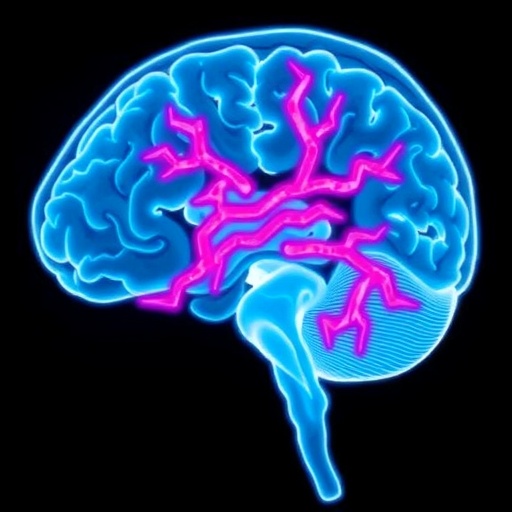In a groundbreaking study soon to be published in npj Parkinson’s Disease, an international team of researchers has uncovered pivotal insights into how severe variants of the GBA1 gene profoundly influence the clinical characteristics of Parkinson’s disease (PD). This discovery is set to reshape the landscape of genetic counseling and clinical trial designs, introducing new precision medicine paradigms aimed at patients harboring these specific genetic mutations.
The GBA1 gene encodes the enzyme glucocerebrosidase, which is essential for lysosomal function and the degradation of glycolipids within the cell. Mutations in GBA1 have long been linked to Gaucher disease, a lysosomal storage disorder, but their role as risk factors for Parkinson’s disease has only recently come into sharper focus. This latest study distinguishes between mild and severe GBA1 variants, illustrating that the severity of these genetic mutations directly drives a distinct clinical phenotype in PD patients.
The researchers meticulously analyzed genetic, clinical, and biomarker data from a large cohort of PD patients with known GBA1 mutations. Their findings highlight that patients carrying severe GBA1 variants exhibit an accelerated disease progression, more pronounced motor symptoms, and an increased likelihood of non-motor complications such as cognitive impairment and psychiatric disturbances. These clinical differences underscore the critical need to stratify PD patients by their GBA1 variant status for both prognosis and therapeutic decision-making.
One of the most compelling aspects of this research is how it elucidates the molecular mechanisms behind the enhanced pathogenicity of severe GBA1 mutations. The team demonstrated that these variants cause a marked reduction in glucocerebrosidase enzymatic activity, resulting in lysosomal dysfunction and subsequent alpha-synuclein accumulation—hallmarks of Parkinson’s pathology. This mechanistic insight provides a clear biological link connecting genotype to phenotype, furnishing a robust framework for targeted interventions.
Moreover, the implications of this study extend profoundly into the realm of clinical practice. Genetic counseling for PD patients has traditionally been challenging due to the complex interplay of multiple genes and environmental factors. By clearly defining the impact of severe GBA1 mutations, genetic counselors can now offer more precise risk assessments and prognostic information, enhancing patient understanding and aiding in individualized care planning.
The study also calls attention to the critical need for personalized approaches in clinical trials. Many therapeutic candidates for PD are geared toward modulating lysosomal function or alpha-synuclein pathology; understanding the underlying genetic context, especially the presence of severe GBA1 variants, allows for better patient selection and trial enrichment. This tailored strategy promises to increase the likelihood of therapeutic success and minimize confounding variables inherent in heterogeneous patient populations.
Importantly, the researchers advocate for the development of novel biomarkers specifically suited to monitor disease progression in severe GBA1-PD patients. These biomarkers could encompass enzymatic activity assays, imaging modalities for lysosomal health, and fluid biomarkers indicative of alpha-synuclein burden. Validated markers would be indispensable both for clinical management and for assessing response to emerging therapies.
This study’s use of advanced genomic sequencing technologies and integrative bioinformatics analyses marks a milestone in Parkinson’s disease research. By leveraging cutting-edge methodologies, the team was able to capture subtle but clinically meaningful genetic nuances, shifting the paradigm from broad genetic risk categorization to fine-grained variant-specific characterization. This level of precision exemplifies the future direction of neurogenetics.
Furthermore, the work underscores the importance of collaborative international consortiums and data sharing initiatives. The researchers pooled expertise and resources across multiple centers, facilitating a large, well-characterized dataset that empowered statistically robust conclusions. Such collaborative frameworks are essential to unraveling complex polygenic diseases and translating findings into meaningful clinical applications.
From a therapeutic standpoint, the stratification by GBA1 variant severity opens avenues for developing variant-specific treatments. For instance, pharmacological chaperones or enzyme replacement strategies may be customized for patients with severe mutations to restore lysosomal function more effectively. This personalized medicine approach aligns with the broader trends in neurology aimed at optimizing efficacy and minimizing adverse effects.
The societal and ethical dimensions surrounding the findings are equally compelling. Accurate genetic characterization raises questions about patient privacy, potential discrimination, and psychological impacts associated with predictive testing. The study emphasizes the necessity of integrating ethical frameworks and patient education into genetic counseling protocols to support informed decision-making and emotional wellbeing.
Beyond Parkinson’s disease, the insights gained may have broader implications for other neurodegenerative disorders linked to lysosomal dysfunction. Similar genetic principles may apply, offering a template to investigate genotype-phenotype correlations and clinical heterogeneity in diseases such as Lewy body dementia and multiple system atrophy, both of which share pathological overlaps with PD.
As these findings disseminate throughout the neuroscience community, they are expected to catalyze a wave of follow-up investigations aimed at refining therapeutic targets, enhancing biomarker development, and improving patient care paradigms. The clarity brought to GBA1 variant-driven disease mechanisms exemplifies how genetic research can directly inform clinical practice and foster innovation in treatment development.
In conclusion, this landmark study highlights the critical role severe GBA1 variants play in dictating the clinical manifestation and progression of Parkinson’s disease. The comprehensive integration of genetic, biochemical, and clinical data paves the way for transformative approaches in genetic counseling and precision medicine. As the Parkinson’s field embraces these insights, patients stand to benefit from more accurate prognoses and tailored therapies addressing the genetic underpinnings of their disease.
Subject of Research: The study focuses on the impact of severe variants of the GBA1 gene on the clinical phenotype of Parkinson’s disease, exploring the genetic, biochemical, and clinical correlations and their implications for counseling and clinical trials.
Article Title: Severe GBA1 variants drive the GBA1-PD clinical phenotype: implications for counselling and clinical trials.
Article References:
Menozzi, E., Del Pozo, S.L., Macnaughtan, J. et al. Severe GBA1 variants drive the GBA1-PD clinical phenotype: implications for counselling and clinical trials. npj Parkinsons Dis. 11, 281 (2025). https://doi.org/10.1038/s41531-025-01063-3
Image Credits: AI Generated




